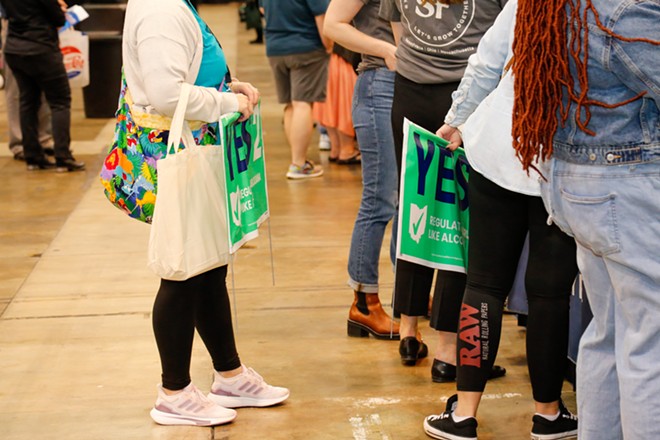On Thursday, just hours into Legal Weed Day, Cleveland City Hall had already taken a step forward. In a press release, the city said it will from now on only drug test potential employees heading for Police, Fire or EMS positions, those at the Port Control, or any job that requires "a commercial driver's license, operating heavy equipment, machines and/or mechanical tools."
Taking a cue from states that already have legal marijuana, like Nevada and Montana, the city admitted that relaxing its testing policies was another method in handling years of understaffing in certain departments and of reducing barriers. (City workers still can't smoke on the job, obviously.)
"Pre-employment screening can often times create obstacles in filling open positions by preventing otherwise qualified candidates from even applying,” Director of Human Resources Matt Cole said in the release. “These policy updates are more cost-effective and will ultimately help us widen the applicant pool for several city positions.”
Though Ohioans can legally possess (and smoke) 2.5 ounces of weed, and grow up to 12 plants per household (which may be cut to six, depending on what the state legislature does), there are currently no adult-use dispensaries where legal weed can be purchased.
It's an odd situation lamented yesterday by Gov. Mike DeWine, who told reporters at a press conference that he hoped things would start moving more quickly as the Statehouse continues its work.
"This bill deals with this ... by speeding up the time when adults will be able to produce recreational marijuana legally," he said, the Ohio Capital Journal reported. "Thus reducing the opportunity for the black market."

Rob McCourt, the founder and head of commercial at Firelands Scientific, a cannabis company headquartered in Westlake, predicted that private companies will handle worker THC allowance—to test or not to test—on a kind of sliding scale: either treat legal weed like booze or prescription meds, or take a federal stance and ban it altogether.
"Well, it's still an illicit drug," McCourt told Scene, referring to weed's status as Schedule I substance in the eyes of the DEA. "I mean, there are implications to insurance underwriting that make it complicated in general. Think about it: 'Prescription meds and alcohol can't be consumed when you're operating the forklift.'
"But," he said, "forklift operator versus software designer? I think it's going to depend."
Removal of testing requirements could, to use City Hall's mentality, lead to hiring barriers falling. Amazon
"We're talking about a drug testing policy that doesn't facilitate anything, really, except for you're taking my pee and seeing that I use weed," said Brian Adams, a professor at the Cleveland School of Cannabis. "But do we know when I used it? Do we know was it last night or two weeks ago? Do we know whether it was a month ago? There has never been accurate testing as far as gauging impairment at that moment."
Adams, who fought for Issue 2 for its social justice implications, said he's more concerned about the city's progress on the 4,000 proposed expungements of those with misdemeanor marijuana charges, which City Hall is continuing to pursue via clinics.
Those convicted of possession under 2.5 ounces will automatically have their cases expunged next year..















